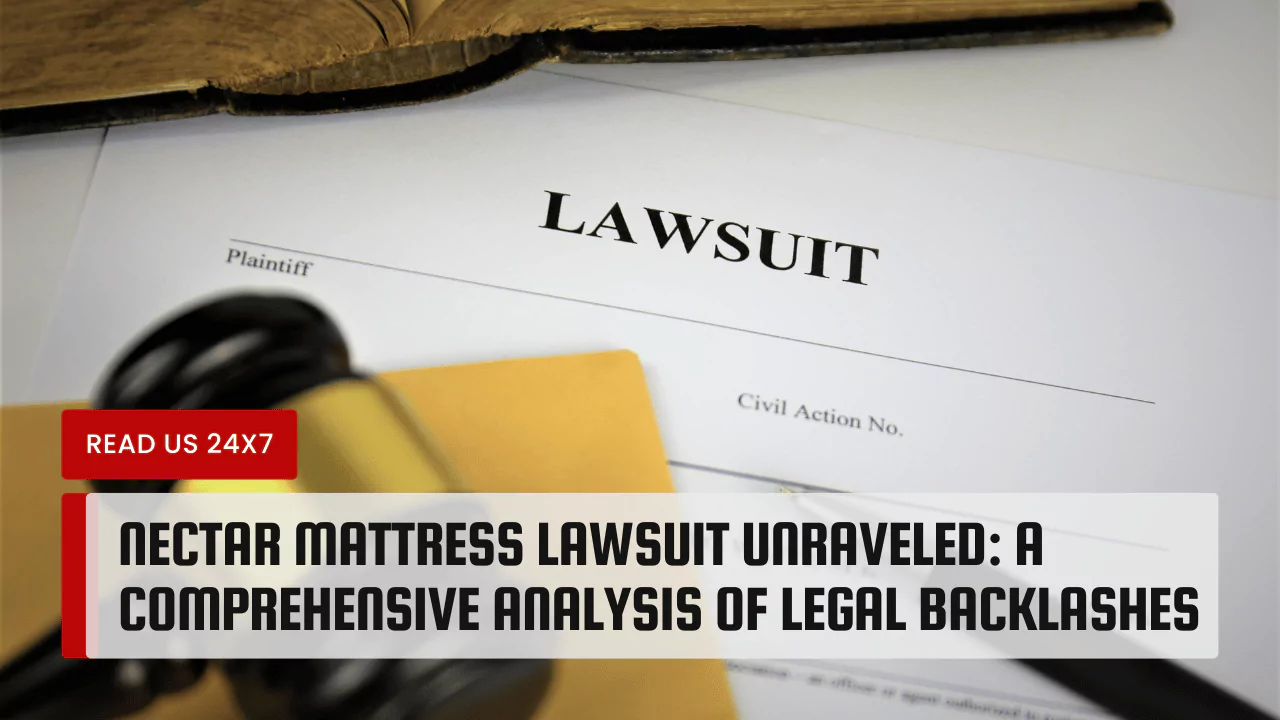In recent years, Nectar Sleep, a prominent mattress company, has found itself entangled in a web of legal disputes, prompting scrutiny and raising questions about its business practices. This article aims to provide a clear and concise analysis of the various allegations and updates surrounding the Nectar mattress lawsuit.
The Nectar Mattress Lawsuit Allegations
False Advertising Claims
Nectar Brand LLC and its parent company, Resident Home LLC, have faced multiple legal backlashes related to false advertising of their mattresses. The US Federal Trade Commission (FTC) issued a complaint in 2018, alleging that Nectar falsely advertised its mattresses as “assembled in the United States.” However, it was revealed that the mattresses were imported from China, without any assembly in the US. Subsequently, Nectar reached an agreement with the FTC, imposing strict criteria for future claims about the origin of their products.
“USA-Made” Claims
Following the 2018 complaint, Resident Home LLC faced another FTC complaint in 2021 regarding its DreamCloud brand. The FTC alleged that Resident Home falsely claimed DreamCloud mattresses were “proudly made with 100% USA-made premium quality materials,” contradicting previous representations made to the FTC. Consequently, Resident Home agreed to settle the charges by paying a significant fine and initiating a claims process for affected customers.
Discount Pricing Claims
Additionally, Nectar is embroiled in a class action lawsuit in California, filed in October 2022, alleging deceptive pricing practices. The lawsuit contends that Nectar misrepresented its mattress prices by showcasing inflated retail prices and purported discounts, which were never actually offered. This ongoing litigation accuses Nectar of violating various consumer protection laws, highlighting the company’s questionable pricing strategies.
Updates on the 2023 Nectar Mattress Lawsuit
Fiberglass Content Claims
Despite speculation, there is currently no class action lawsuit against Nectar regarding the fiberglass used in their mattresses. While some Nectar mattresses contain fiberglass as a flame retardant, concerns have been raised about potential health hazards associated with fiberglass exposure. However, as of now, no formal legal action has been taken against Nectar in this regard.
Other Fiberglass Mattress Lawsuits
The possibility of a Nectar mattress fiberglass lawsuit has been fueled by similar legal battles against other mattress companies. For instance, a class action lawsuit against Zinus, a South Korean mattress company, highlighted the dangers of fiberglass in memory foam mattresses. Although these lawsuits serve as precedents, Nectar has yet to face litigation specifically related to fiberglass content in its products.
Nectar Mattress Lawsuits: 2024 Updates
False “Made-in-USA” Claims Lawsuit 2024
The false advertising complaints concerning Nectar’s “Made-in-USA” claims have been resolved, with the company agreeing to pay a substantial fine to settle the charges. Despite previous assurances, Nectar was found to repeat false claims regarding the origin of its mattresses, further tarnishing its credibility and inviting legal repercussions.
Nectar Repeats False Claims in 2021
In a concerning turn of events, Nectar Sleep’s parent company, Resident Home LLC, repeated false claims about the manufacturing of its mattresses in 2021, triggering renewed scrutiny and legal action. This pattern of deception raises questions about Nectar’s integrity and highlights the need for stricter enforcement of consumer protection regulations.
Why is Nectar Lying About Where Their Mattresses Are Made?
The recurrence of false advertising allegations begs the question: Why does Nectar persist in misleading consumers about the origin of its mattresses? Despite facing previous legal consequences, the company continues to make deceptive claims, undermining trust and integrity in the marketplace. This ongoing saga underscores the importance of transparency and accountability in business practices, urging consumers to remain vigilant and informed.
In conclusion, the Nectar mattress lawsuit saga illustrates the complexities and challenges of navigating legal disputes in the consumer goods industry. As the legal landscape evolves, it is imperative for companies like Nectar to uphold ethical standards and prioritize honesty in their dealings with consumers. Only time will tell how these legal battles will shape the future of the mattress industry and consumer protection regulations.


